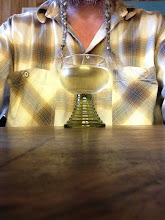Anyway that's not what I want to talk about today, I want to talk about The Iliad in about three paragraphs.
Firstly the hero Achilles is mostly absent- he's sulking on a beach. I'm not sure when he might appear in full flourish, but hats off to the poet (Homer) who keeps the main guy out of the action for as far as I've got (half way). The main text is unrelenting carnage, describing in about three brutal deaths per page (the 'well aggrieved') Greeks attempt to sack Troy. It's a bit like a description of the Grand National, nobody falls without a description of how and why. Maybe all wars should be described like this, but they are not.
It's a clever three way plot, for Achilles, whilst he's on the beach with the Greeks, has fallen out bitterly with Agamemnon, the leader, and has refused to fight against the Trojans. Since Achilles is half god, he's got the ear of his mother to persuade God of all Gods Zeus to go against Agamemnon with the Trojans, so I believe the Trojans are supposed to win, but I'm not at all sure right now, for the mansion of the Gods is a bit like the set of Eastenders, they seem endlessly plotting against each other and Zeus is always pissed off with them.
The reason Achilles and Agamemnon fall out is because Agamemnon stole his wife. There is a lot of this; the reason the Greeks are trying to sack Troy is because somebody stole somebody else's wife. We are also made acutely aware that the Ancient Greeks were a bunch of pirates, basically horse trading treasure acquired from others. In the battlefield they slay, then they pause to plunder the armour (CUT- plunder the armour- note it's precise qualities etc!)
They live on boats or in huts. There are well made huts but no architecture as yet. They cast their trophies (armour of the slayed) in to the trees to please the gods who are often duplicitously helping them whilst Zeus has passed out from having far too much sex with the duplicitous Hera (his wife). Aphrodite (her daughter) had unwittingly given Hera extra sexual powers so she could go and spice up the life of the grandparents 'down below' ( a most ancient inculcation of Viagra) but actually she used them on the old boy Zeus himself. When he wakes up he's going to be pissed.
The moral message? Well, so far, hero Achilles stands his moral (high) ground. That seems to be a good thing. Agamemnon, despite periodic feats of valour, vacillates- hence not doing so well in the heroic stakes. Probably Hector, superman of the Trojans, will meet his doom while Zeus sleeps it off. It is clear that for Homer it's best to know what you think and stick with it, even if you die (but kinda handy to have circumspection as well as invincible powers) because if you die that way you will be remembered by the poets well.
You can see that centuries on, this attitude has caused many problems, but I'll hang with it for now.
It's a terrific book, if relentless in death, and the girls just knit.


No comments:
Post a Comment